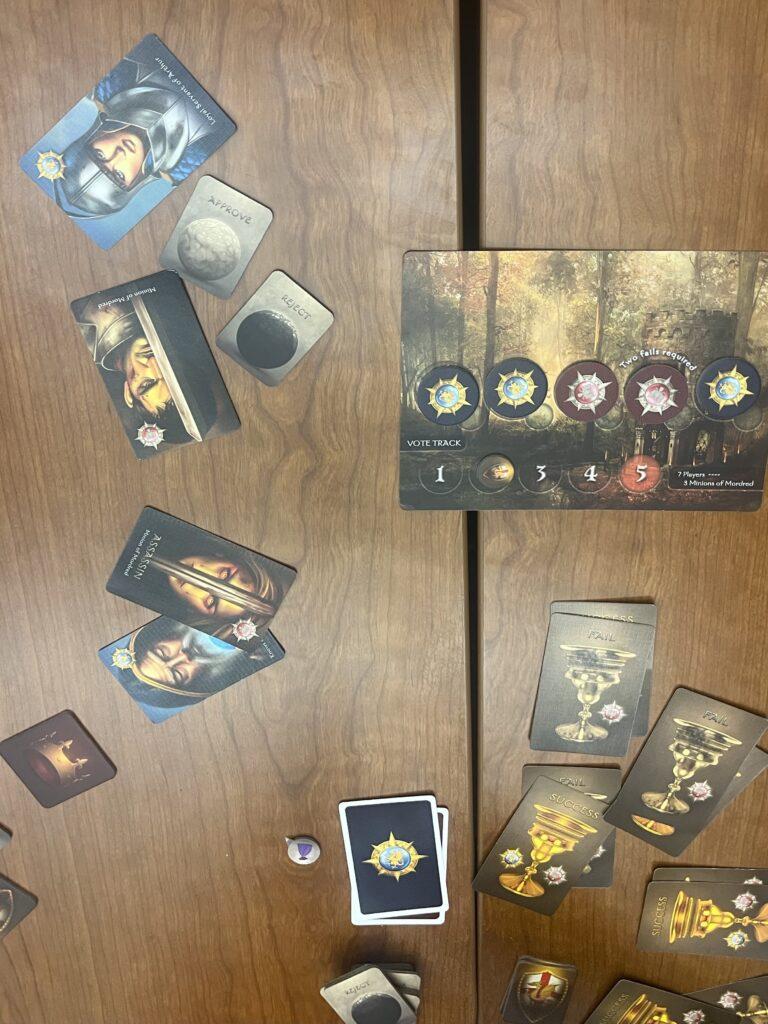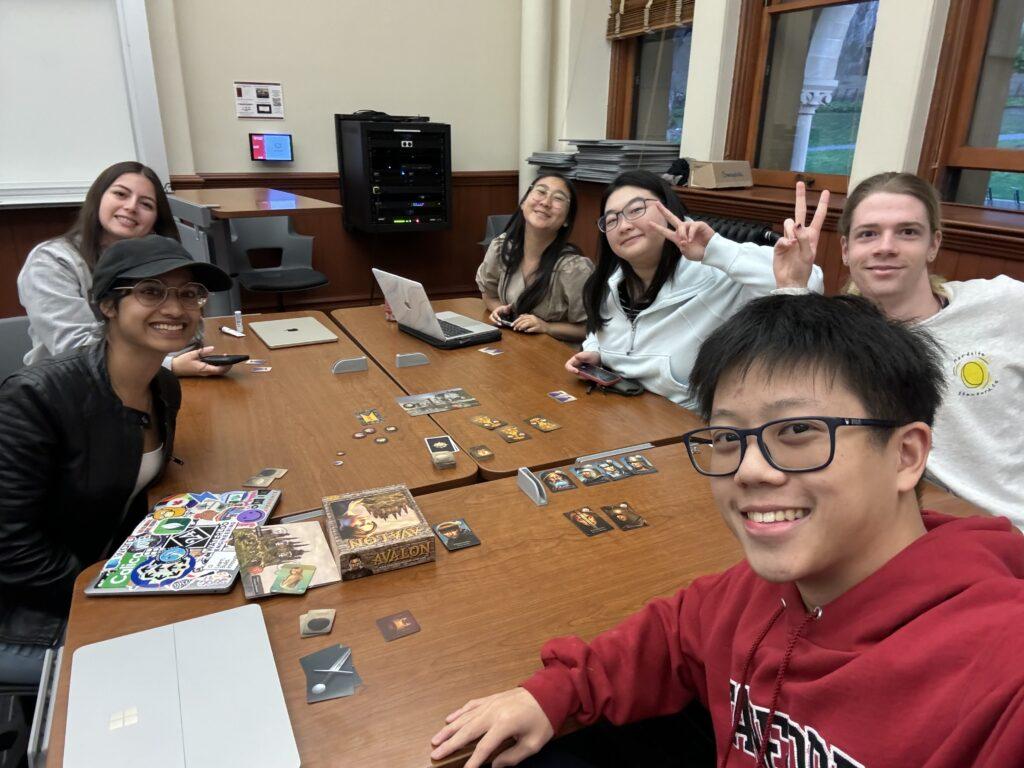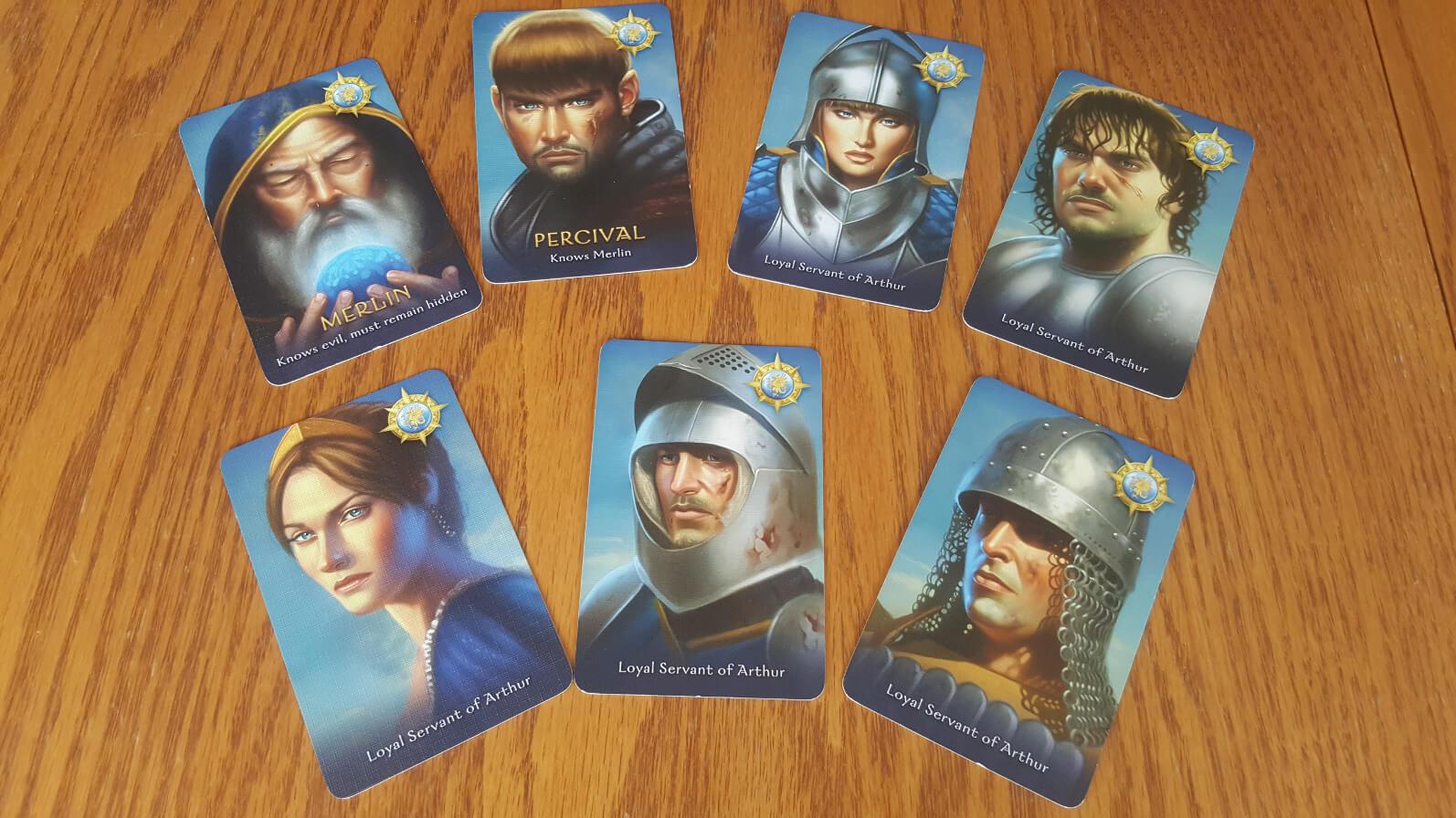The game, The Resistance: Avalon, was manufactured by Indie Boards and Cards and is available in physical form as a board game. This game is about hidden loyalty and is a battle between good and evil. In the game, the good are the loyal servants of Arthur, the legendary king of Britain, Merlin, a wizard capable of detecting evil, and the evil are assassins who aim to kill Merlin.
I played this game for the first time during game night and it was a ton of fun. I really enjoyed this type of game because it’s fun trying to see who in the group is lying and also finding ways to trick others. I think the mechanics, dynamics, and aesthetics of Avalon really contribute to this appeal.

The Mechanics, Dynamics, and Aesthetics
In the game, there are more people on the good team than the evil team and the good players do not know who the evil players are. The game begins with the evil players identifying each other and one good player, the Merlin, identifying who the evil players are. These mechanics allow evil players to build camaraderie with each other and Merlin to feel empowered by being the only good player with the knowledge of who the evil players are.
Additionally, during each round, if you are the current leader, you can choose who among the players go on the “missions”. Depending on if you are on the good team or bad team you may decide on players to sway the fate of the mission in one way or another. Each choice you make as a leader can be investigated and show something about your identity. For instance, if you are the Merlin and choose 3 players (who you know are good), and the mission succeeds with 3 successes, players on the evil team may derive that you are the Merlin as you purposely chose no evil players.
Also, sometimes players can choose to make choices that could fake other players out. For example, if you were on the evil team and were selected to go on a mission, you can choose to succeed in this mission. You may do this in order to avoid other players suspecting you as an evil player and preventing you from going on future missions.
Overall, these mechanics and dynamics add to the fun this game brings to its players. As an evil player, you have to be attentive to who may be the Merlin in order to assassinate them and win the game. You should pay attention to the choices each player makes and the results of their actions. As a good player, you should be on the lookout for who may be an evil player and avoid selecting them to go on missions. Because the game allows for this type of voting and decision making, there is a lot of room for discussion and investigating. Players are immersed in narrative, role-playing, and deceiving each other, as well as fellowship, because you must be keen on reading others’ body language, inquiries, choices, and faces.
From this, I believe the target audience is people who enjoy games that involve hidden loyalty and a lot of strategy. I think this game would be most enjoyable to close friends and family and the young adult group.
My Experience
Since I am a person who does not have a good poker face and it was my first time playing, this game was difficult for me to play. This game relies heavily on your ability to deceive others. 
However, I was able to use this to my advantage. As a good non-merlin player, I can act suspiciously through my body language, to trick evil players into believing I am the Merlin. If they assassinate me, they would lose the game. This strategy was ALMOST successful, but the Merlin was also obvious. Another strategy I developed was to be silent. Sometimes the less you say as a player, the less information others have about you. I did notice that this strategy is more effective as an evil player than as a good player, as sometimes being silent can make you suspicious as well. This strategy was successful because the evil players suspected other players more, as they had more information on them.
Lastly, I noticed that the game can possibly extend beyond the table, or the “Magic Circle”, as when justifying why I chose players to be on a mission, sometimes I would state personal reasons not relevant to the game and they would be viewed as justifiable.
—
Thanks to the teaching team for hosting game night. I had lots of fun!




